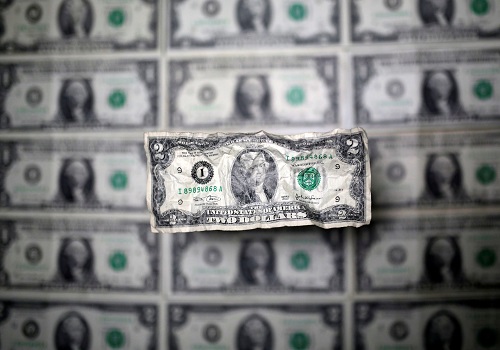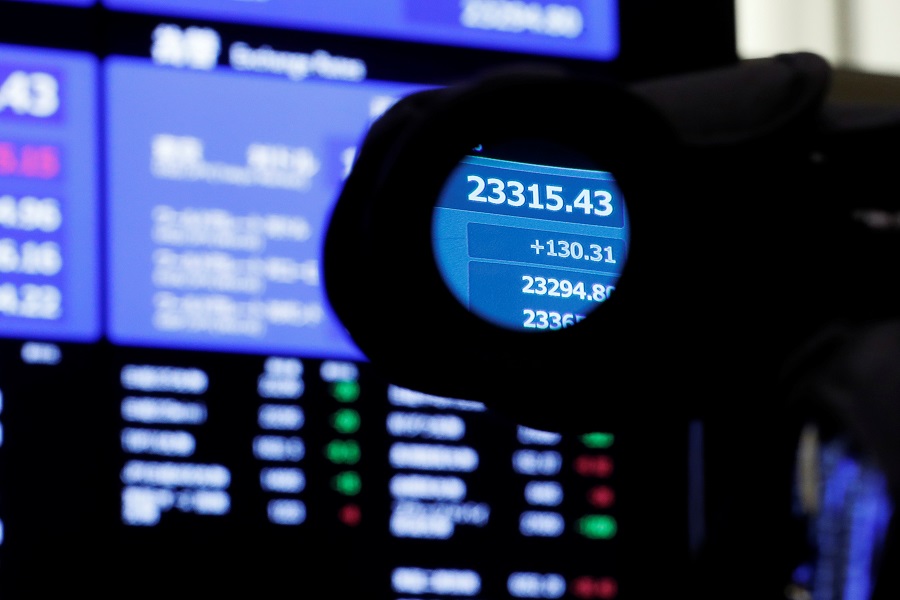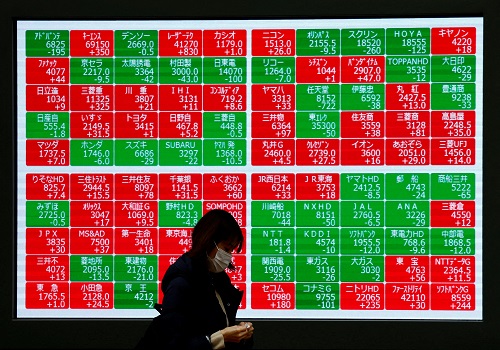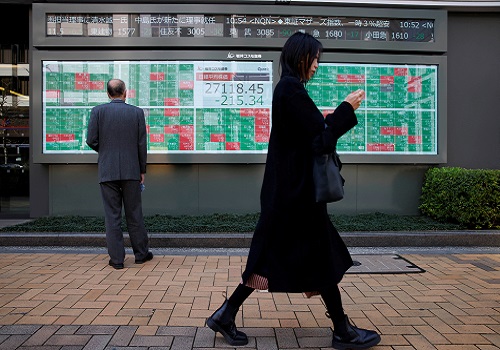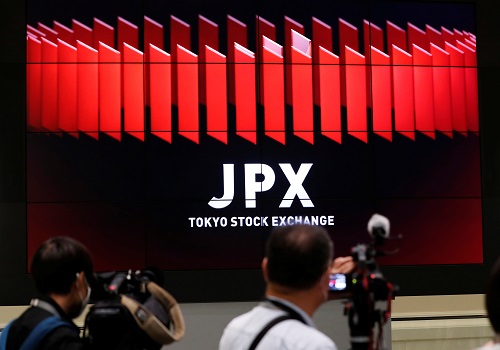Japanese stocks rise, yen slides after BOJ's cautious stance

Japanese shares rose, outperforming weaker Asian markets, and the yen fell broadly after the Bank of Japan said it would start trimming its huge bond purchases in the future, dashing some bets that it would begin the process sooner.
Tokyo's Nikkei reversed course to trade 0.7% higher, while the yen slumped to a 1-1/2-month low of 157.98 per dollar, after Japan's central bank kick started its slow but steady retreat from its massive monetary stimulus.
While the BOJ said it will continue to buy government bonds at the current pace of roughly 6 trillion yen ($38 billion) per month, it also committed to laying out details of its tapering plan for the next one to two years at a subsequent meeting in July.
"We will conduct purchases in accordance with our decision made at the March meeting," the BOJ said in a statement, but added that it would reduce the purchase amount "thereafter to ensure that long-term interest rates would be formed more freely in financial markets."
Ben Bennett, Asia-Pacific investment strategist at Legal and General Investment Management, said there was a growing expectation that the BOJ would reduce government bond purchases, effectively starting to reverse quantitative easing.
"They have indeed announced an intention to reduce bond holdings, but we have to wait until their next policy meeting for details... So the initial market reaction has been for lower yields and a weaker yen."
The yen's decline to a 34-year low of 160.245 per dollar at the end of April triggered several rounds of intervention by Japanese authorities totalling 9.79 trillion yen ($62.25 billion).
The yen, which is extremely sensitive to U.S. Treasury yields, is down over 10% against the dollar this year.
Greg Hirt, global CIO for multi asset at AllianzGI, expects the BOJ to remain patient and possibly raise rates only in July or later this year as more data become available over the summer.
"The wild card is the renewed weakness of the yen over the past two months. Another bout of currency-induced cost-push inflation could be detrimental to achieving the goal of real income growth."
Across Asia, stockes wavered, with MSCI's broadest index of Asia-Pacific shares outside Japan was 0.16% lower. Chinese stocks were also down, with the blue chip stocks off 0.4%.
FED VIEW
Investors are also pondering the outlook for U.S. rates after the Federal Reserve tempered its rate-cut views even as inflation came in softer than expected, with the dollar hovering near a one-month high on the back of the hawkish Fed.
Political uncertainty in Europe has kept the euro under pressure. [FRX/]
Data on Thursday showed the number of Americans filing new claims for unemployment benefits increased to a 10-month high last week, while producer prices unexpectedly fell in May.
That followed Wednesday's cooler-than-expected consumer inflation report and the Fed's revised dot plot, which lowered rate-cut expectations this year from three to one.
James McCann, deputy chief economist at abrdn, said the Fed seems to be in a patient mood as it waits for signs of sustained progress on inflation and expects the U.S. central bank to start its monetary easing campaign in December.
Traders though are taking their cues from the inflation reports and are now pricing in 50 basis points of cuts this year, with a rate cut in September priced in at 68%, CME FedWatch tool showed.
"Rate expectations are likely to remain volatile over coming months against the backdrop of a data dependent Fed," McCann said.
The shifting expectations has seen the dollar bounce around this week, with the U.S. currency index which measures its value against six peers, last at 105.25, not far from the one-month high of 105.46 it touched on Tuesday. The index is up 0.3% for the week. [FRX/]
In commodities, oil prices eased on Friday but were on track for their first weekly gain in four weeks as markets assessed the impact of U.S. rates staying higher for longer against solid outlooks for crude and fuel demand this year.
Brent crude futures fell 0.62% to $82.26 a barrel while West Texas Intermediate (WTI) U.S. crude futures eased 0.69% to trade at $78.08. [O/R]
($1 = 157.2600 yen)













